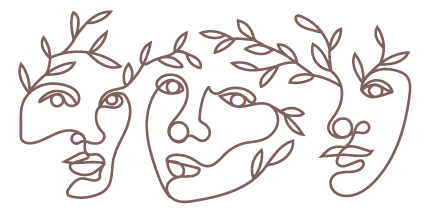Believe Them: The Stories Left Behind
CW: Discussion of Sexual Assault and Abuse
As the global pandemic roars, there is another epidemic no one is talking about: sexual assault of disabled people. Far too often, these stories go unrecognized, un-prosecuted, and unpunished, not only leaving abusers on the street free to harm more victims, but also leaving far too many survivors suffering in silence. How widespread is this epidemic? According to the organization Disability Justice, 83% of women with disabilities will be sexually assaulted in their lives. Presumably, the number is much higher than this, as only 3% of sexual abuses involving people with developmental disabilities are ever reported. In fact, the Justice Department's annual report about crime against all people with disabilities found that people with intellectual disabilities are sexually assaulted at more than seven times higher than the rate for persons with no disabilities. While this issue is widespread and multifaceted, at the core of it all is a common theme: systemic ableism. In order to understand this issue, we must understand its causes. It starts with abusers who take advantage of an often unbalanced power dynamic. Predators manipulate intellectually or developmentally disabled victims to silence them. This power dynamic gives abusers less pause in praying on their victims; in fact, the Justice Department found that 40 percent of sexual assaults towards disabled folk occur during the daytime, and intellectually disabled folk are even more likely to be raped by someone they know. Group homes and institutions for developmentally disabled individuals are prime targets for abusers, as proper controls and protocols are often not in place due to overcrowding and human error. In the Rainer school, an institution for intellectually disabled adults were the residents often aren't able to speak, a staff member walked in to find her male boss with his pants down next to the disabled women they cared for, unable to speak about what had happened.(Joseph Shapiro, NPR) Abusers' ability to manipulate their situation and have easy access to victims fuels abusers' power, and is incredibly dangerous.
Compounding this issue is the lack of reported sexual assault cases from developmentally disabled victims. Adding to the manipulation from abusers is the lack of trust from family and friends, who often don't believe when victims recount their experiences. Once again this is rooted in the ableist belief that disabled folk isn’t trustworthy or that it’s “all in their head”.
Finally, we have a systemically ableist criminal justice system. Law enforcement's ableism often clouds them from believing disabled victims, often re-victimizing them by accusing them of dreaming or hallucinating the abuse. Instead, they are more likely to believe able-bodied abusers. Then there's the lack of care for what happens to disabled victims. Far too often people believe that they are too inept to process the pain that comes with being abused. The law enforcement system doesn't care about these victims because more often than not they don't have a voice or cause scandals. Institutions aren't forced to be safer because no one is holding them accountable. Common ableist tropes that perpetuate this culture of sexual abuse include the belief that disabled people are not inherently sexual. Disabled and able-bodied people can have consensual healthy relationships, but far too often people don’t see disabled people this way. We often infantilize disabled adults, treating them as perpetual children. This trope often leads to disabled folk being denied a lack of comprehensive sexual education. (Center For American Progress) Society's belief that disabled folk are pure chaste beings, is denying disabled folk the education needed to recognize and verbalize an unhealthy, abusive relationship. Furthermore, societies' internalized ableist belief that developmentally disabled adults are like children or inept, often denies the fact that they can be raped, and can be credible sources.
What must we do about this deeply disturbing issue? Institutions and group homes for developmentally disabled individuals must be held to a higher standard. All institutions need to do intensive background checks, sexual abuse seminars and work to implement procedures to create a safer environment, because clearly what they are doing now is not enough. Law enforcement officers, detectives, and prosecutors must receive bias training explicitly addressing ableism along with training on how to work with developmentally disabled victims. As for the rest of us, we must do better to break down our own stigmas and biases, and please do believe disabled victims. This issue will still haunt our nation as long as systemic ableism is still rampant.
Sources:
https://www.npr.org/2018/01/10/566608390/she-can-t-tell-us-what-s-wrong
https://disabilityjustice.org/sexual-abuse/
https://www.americanprogress.org/issues/disability/news/2021/02/12/495746/sexual-violence-disability-community/
https://www.rainn.org/

